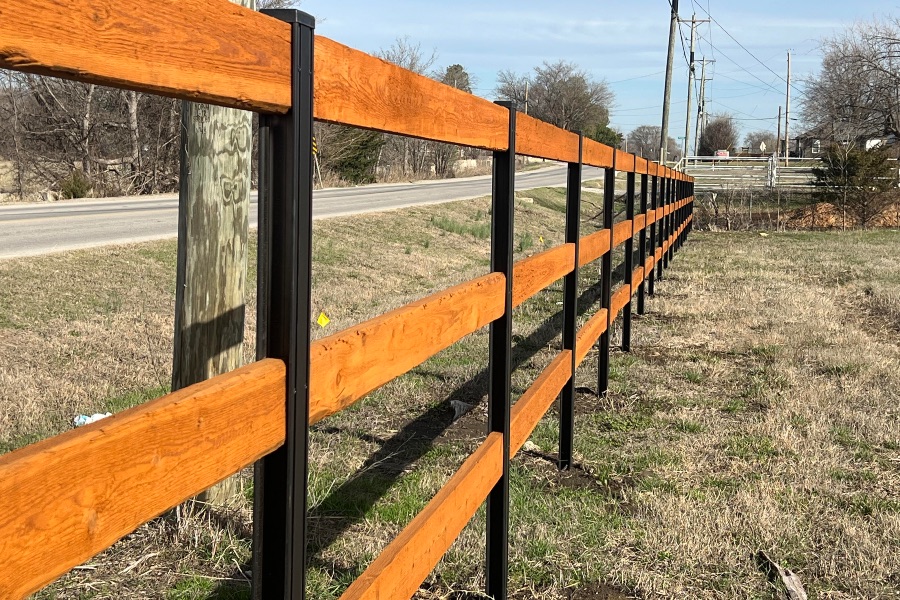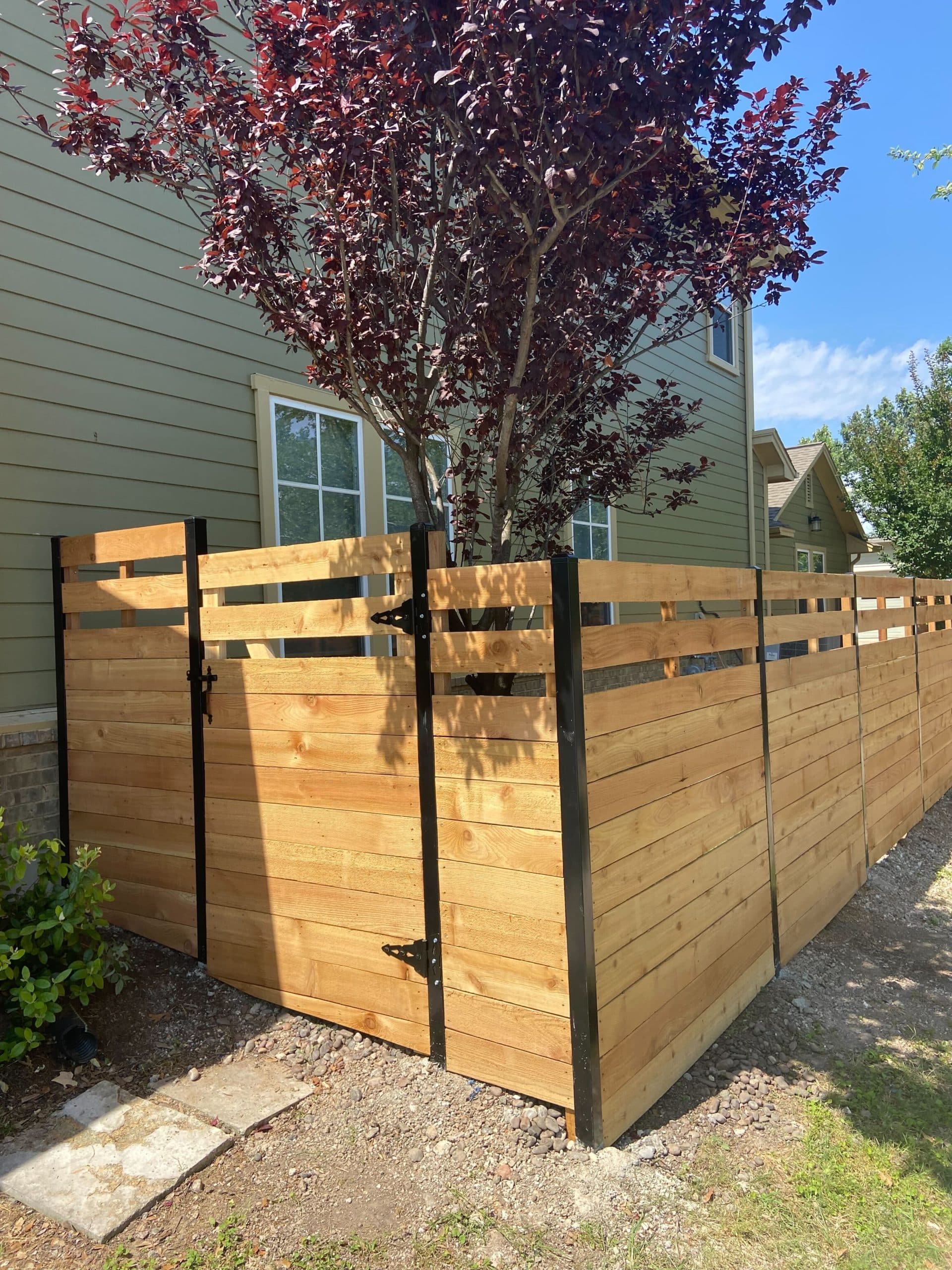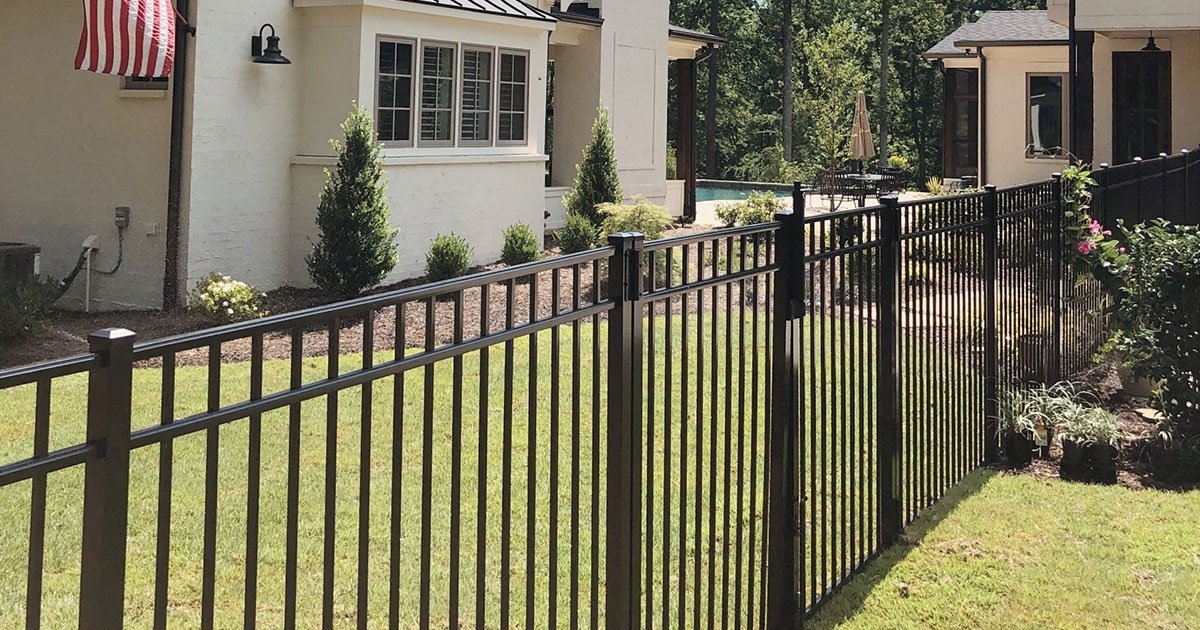All Categories
Featured
When you make a decision to set up a fence around your household home, it's necessary to understand the license needs details to your area. While installing a fence can appear like a straightforward home improvement project, local laws and laws should be followed to ensure the setup is lawful and compliant. Failing to secure the correct authorizations could lead to penalties and even need you to get rid of the fence. Below's an extensive check out the licenses you may require for fence setup.
Why Do You Required a Permit for Fencing Installation? A fence is greater than simply an obstacle in between buildings-- it can impact safety and security, property value, looks, and even environmental conditions. Local federal governments require permits to make sure that fencings fulfill particular standards and do not trigger troubles for utilities, neighbors, or the area as a whole. Licenses also guarantee that the setup abides by zoning laws, developing codes, and security regulations.
![]()
Kinds of Authorizations You Might Need. Structure License. A structure license is among the most common licenses required for fencing installation. This permit makes sure that the fencing satisfies local building regulations. If you're developing a fence over a specific elevation (normally over 6 feet), you'll likely need a building license. The regional building division will normally analyze the website and review strategies to make certain the structure is stable and does not block public spaces or develop risks.
Zoning Permit. Zoning regulations govern how land is made use of in a particular area, and they include policies concerning fencings. A zoning permit guarantees your fence abides by height, location, and setback laws. For example, fences may need to be established back a particular range from pathways, roads, or residential property lines to avoid blockage or disturbance with utilities. In some instances, zoning regulations can also define which products are enabled.
HOA Authorization. If your home belongs to a home owners association (HOA), you may need to look for authorization prior to mounting a fence. HOAs normally have guidelines that govern the visual appeals and structure of fences to guarantee they agree with the community. You might require to send your prepare for approval, and the HOA might restrict fence material, style, or height.
Specialty Permits. In some areas, there may be extra licenses needed for details scenarios. If your fencing is near a secured ecological area or situated in a flood zone, you may need to obtain specialty licenses associated to ecological effect. In a similar way, if the fencing remains in an area with underground utilities, you might need to acquire clearance to avoid damaging pipelines or cords.
![]()
Easement or Energy Business Authorization. Before installing a fencing, it's critical to examine whether the home consists of an easement, such as an energy easement, which might impact where you can position your fence. Easements are areas of land marked for public or private utilities, and you may need consent from the energy business or various other authority to build within this area.
Exactly How to Learn What Allows You Need. To guarantee that you're following all the essential laws, here's just how you can figure out the specific authorizations required for your fencing setup:
![]()
Go To Your Regional Government Workplace: The first action is to consult your local structure or zoning division. Several cities and counties have guidelines offered online that define what sorts of licenses are required for fence setup. Otherwise, seeing the workplace or calling face to face can help make clear the procedure. Check Your City's Web site: Many districts supply information about fence installments and the licenses required via their official websites. Some websites also allow you to submit applications on the internet. Seek Advice From a Fence Installment Expert: If you're not sure regarding local guidelines, a professional fence service provider can aid. They are acquainted with the allowing procedure and can assist you with the steps. The Consequences of Not Getting a Permit. Stopping working to safeguard the required authorizations prior to mounting a fencing can lead to considerable consequences. You might be fined or required to remove the fencing totally. Additionally, if you decide to sell your building in the future, the absence of a permit can discourage possible purchasers, as they might see it as an indicator that the residential property is not certified with local laws. Making sure that you have the appropriate authorizations will certainly conserve you time, cash, and frustrations in the long run.
Final thought. Installing a fence around your property can include both safety and security and aesthetic allure, however it's vital to guarantee you're adhering to the legal steps in the process. Researching the specific authorization requirements for your location, consisting of building licenses, zoning laws, HOA approval, and energy permissions, will aid guarantee your fencing installation goes smoothly. Making the effort to understand these demands now can save you from pricey errors and prospective legal concerns down the line.
Why Do You Required a Permit for Fencing Installation? A fence is greater than simply an obstacle in between buildings-- it can impact safety and security, property value, looks, and even environmental conditions. Local federal governments require permits to make sure that fencings fulfill particular standards and do not trigger troubles for utilities, neighbors, or the area as a whole. Licenses also guarantee that the setup abides by zoning laws, developing codes, and security regulations.

Kinds of Authorizations You Might Need. Structure License. A structure license is among the most common licenses required for fencing installation. This permit makes sure that the fencing satisfies local building regulations. If you're developing a fence over a specific elevation (normally over 6 feet), you'll likely need a building license. The regional building division will normally analyze the website and review strategies to make certain the structure is stable and does not block public spaces or develop risks.
Zoning Permit. Zoning regulations govern how land is made use of in a particular area, and they include policies concerning fencings. A zoning permit guarantees your fence abides by height, location, and setback laws. For example, fences may need to be established back a particular range from pathways, roads, or residential property lines to avoid blockage or disturbance with utilities. In some instances, zoning regulations can also define which products are enabled.
HOA Authorization. If your home belongs to a home owners association (HOA), you may need to look for authorization prior to mounting a fence. HOAs normally have guidelines that govern the visual appeals and structure of fences to guarantee they agree with the community. You might require to send your prepare for approval, and the HOA might restrict fence material, style, or height.
Specialty Permits. In some areas, there may be extra licenses needed for details scenarios. If your fencing is near a secured ecological area or situated in a flood zone, you may need to obtain specialty licenses associated to ecological effect. In a similar way, if the fencing remains in an area with underground utilities, you might need to acquire clearance to avoid damaging pipelines or cords.

Easement or Energy Business Authorization. Before installing a fencing, it's critical to examine whether the home consists of an easement, such as an energy easement, which might impact where you can position your fence. Easements are areas of land marked for public or private utilities, and you may need consent from the energy business or various other authority to build within this area.
Exactly How to Learn What Allows You Need. To guarantee that you're following all the essential laws, here's just how you can figure out the specific authorizations required for your fencing setup:

Go To Your Regional Government Workplace: The first action is to consult your local structure or zoning division. Several cities and counties have guidelines offered online that define what sorts of licenses are required for fence setup. Otherwise, seeing the workplace or calling face to face can help make clear the procedure. Check Your City's Web site: Many districts supply information about fence installments and the licenses required via their official websites. Some websites also allow you to submit applications on the internet. Seek Advice From a Fence Installment Expert: If you're not sure regarding local guidelines, a professional fence service provider can aid. They are acquainted with the allowing procedure and can assist you with the steps. The Consequences of Not Getting a Permit. Stopping working to safeguard the required authorizations prior to mounting a fencing can lead to considerable consequences. You might be fined or required to remove the fencing totally. Additionally, if you decide to sell your building in the future, the absence of a permit can discourage possible purchasers, as they might see it as an indicator that the residential property is not certified with local laws. Making sure that you have the appropriate authorizations will certainly conserve you time, cash, and frustrations in the long run.
Final thought. Installing a fence around your property can include both safety and security and aesthetic allure, however it's vital to guarantee you're adhering to the legal steps in the process. Researching the specific authorization requirements for your location, consisting of building licenses, zoning laws, HOA approval, and energy permissions, will aid guarantee your fencing installation goes smoothly. Making the effort to understand these demands now can save you from pricey errors and prospective legal concerns down the line.
Latest Posts
A Complete Guide to the Car Buying Process
Published Dec 25, 24
1 min read
Why Flat Roofs Are Ideal for Your Commercial Property
Published Dec 25, 24
3 min read
Bare Bones Furniture & Mattress
Published Dec 25, 24
2 min read